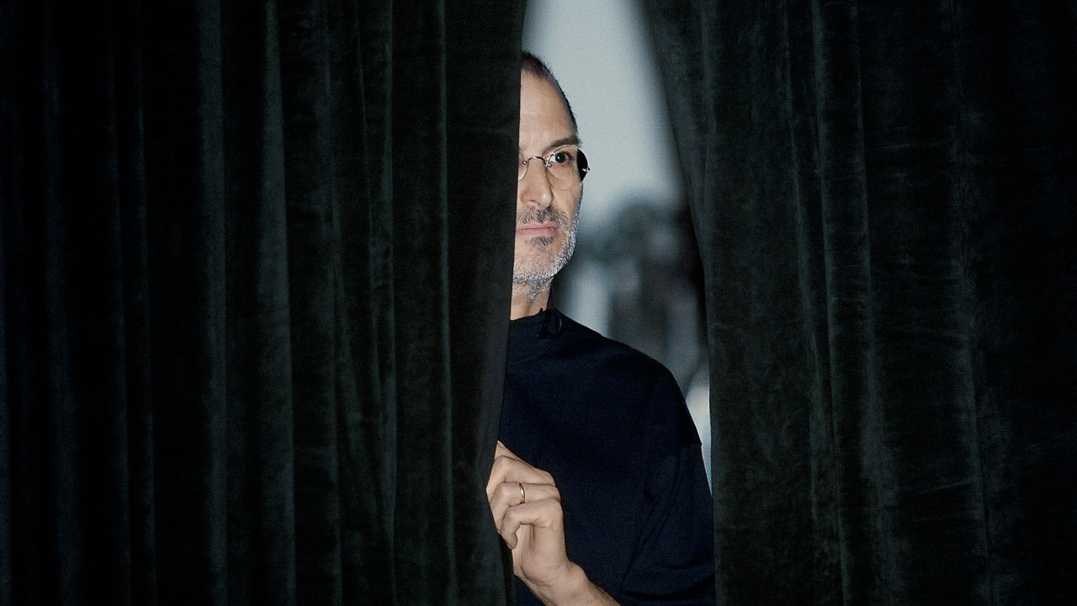Becoming Steve Jobs este cea mai recenta carte biografica al carui subiect principal este legendarul CEO Apple, Steve Jobs, ea urmand a fi publicata in perioada urmatoare in diverse magazine din SUA si nu numai. Cu doar cateva zile inaintea aparitiei sale avem ocazia de a afla cateva detalii extrem de interesante in legatura cu viata fostului CEO al companiei americane, cu interctiunea sa vis-a-vis de angajati, prieteni si colegi.
Zilele trecute v-am vorbit despre Tim Cook si dorinta de a-i dona o portiune din ficat lui Steve Jobs pentru a-l ajuta in operatia facuta cu mai bine de un deceniu in urma, iar astazi avem alte detalii interesante. Tim Cook vorbeste in carte Becoming Steve Jobs despre fostul CEO Apple ca fiind o persoana calda pe care a intalnit-o la inceputul anului 1998, el fiind o persoana increzatoare si pasionata de ceea ce face, avand totusi o latura sentimentala care avea sa-i cuprinda o portiune mai mare din caracter pana in momentul decesiului.
“The Steve that I met in early ’98 was brash and confident and passionate and all of those things. But there was a soft side of him as well, and that soft side became a larger portion of him over the next 13 years. You’d see that show up in different ways. There were different employees and spouses here that had health issues, and he would go out of his way to turn heaven and earth to make sure they had proper medical attention. He did that in a major way, not in a minor, ‘Call me and get back to me if you need my help’ kind of way.
Conform lui Cook, Steve Jobs avea intotdeauna grija de angajatii bolnavi ai companiei Apple, facand tot ceea ce ii statea in putinta pentru a-i ajuta pe acestia sa beneficieze de cea mai buna ingrijire medicala disponibila, problemele medicale ale celor din jur rezonand probabil intr-o anumita masura cu cele proprii. Mai mult decat atat, Tim Cook povesteste inclusiv momentul in care Steve Jobs si-a sunat mama spunandu-i sa-l ajute sa il convinga pe actualul CEO Apple sa aiba o viata sociala mult mai activa, relatia dintre cei doi fiind extrem de stransa.
Separat de Tim Cook, cartea prezinta si informatii oferite de catre Eddy Cue, actualul vicepresedinte senior al diviziei de servicii de internet, acesta afirmand ca Steve Jobs a muncit constant pana in ultimele sale zile de viata, dorind sa fie tratat ca orice alta persoana normala, nu precum una bolnava. Conform cartii, Jobs a inceput sa puna accent mai mare pe marketing design si prezentarea produselor dupa lansarea primului iPhone, iar acest lucru a ajutat Apple sa vanda din ce in ce mai multe produse.
Revenirea lui Steve Jobs la conducerea Apple in anii ’90 a ajutat la redresarea companiei, insa in 2004 Jobs a realizat ca nu va conduce compania pentru totdeauna, astfel ca a pus bazele unui plan de succesiune pentru postul sau. In aceasta idee, universitatea Apple a fost fondata pentru a ajuta angajatii sa invete cum sa ia decizii grele care au impact asupra intregii companii, Jobs incepand de atunci sa explice si ratiunea din spatele multor decizii luate de-a lungul timpului.
“Steve cared deeply about the why,” says Cook. “The why of the decision. In the younger days I would see him just do something. But as the days went on he would spend more time with me and with other people explaining why he thought or did something, or why he looked at something in a certain way. This was why he came up with Apple U., so we could train and educate the next generation of leaders by teaching them all we had been through, and how we had made the terrible decisions we made and also how we made the really good ones.”
Desi in tinerete Jobs lua decizii care uneori pareau nebunesti si nu explica ratiunea din spatele lor, dupa anul 2004 explica aproape fiecare decizie importanta si ratiunea din spatele ei pentru a-si ajuta echipa de conducere sa inteleaga impactul lor si cum sa actioneze in viitor.
This belief in Apple as a special place—as a company as magical, perhaps, as an iPad—was something Steve shared with Cook and was certainly part of the reason he urged the board of directors to sign off on Cook as his successor. “This was a significant common thread we had,” says Cook. “I really love Apple, and I do think Apple is here for a bigger reason. There are very few companies like that on the face of the earth anymore.”
Ca parte a planului sau de succesiune, Steve Jobs l-a instalat pe Tim Cook in doua randuri in functia de CEO interimar in perioadele in care el a fost supus unor operatii menite sa-i salveze viata, iar pe 11 august 2011 a luat decizia finala cu privire la viitorul lui Cook. In acea zi Steve Jobs si-a sunat prietenul pentru a-l anunta ca el urmeaza sa fie urmatorul CEO al companiei Apple, consiliul director aproband schimbarea cu doua luni inainte de decesul co-fondatorului companiei.
“He says, ‘You make all the decisions.’ I go, ‘Wait. Let me ask you a question.’ I tried to pick something that would incite him. So I said, ‘You mean that if I review an ad and I like it, it should just run without your okay?’ And he laughed and said, ‘Well, I hope you’d at least ask me!’ I asked him two or three times, ‘Are you sure you want to do this?’
In continuare veti citi despre modul in care Tim Cook a gandit ca va actiona Steve Jobs in calitate de membru al consiliului de administratie, alte detalii fiind disponibile in articolul publicatiei americane.
Eight weeks after Steve told Cook he was making him CEO, things took a sudden turn for the worse. “I watched a movie with him the Friday before he passed away,” Cook remembers. “We watched Remember the Titans [a sentimental football story about an underdog]. I was so surprised he wanted to watch that movie. I was like, ‘Are you sure?’ Steve was not interested in sports at all. And we watched and we talked about a number of things and I left thinking that he was pretty happy. And then all of a sudden things went to hell that weekend.”































